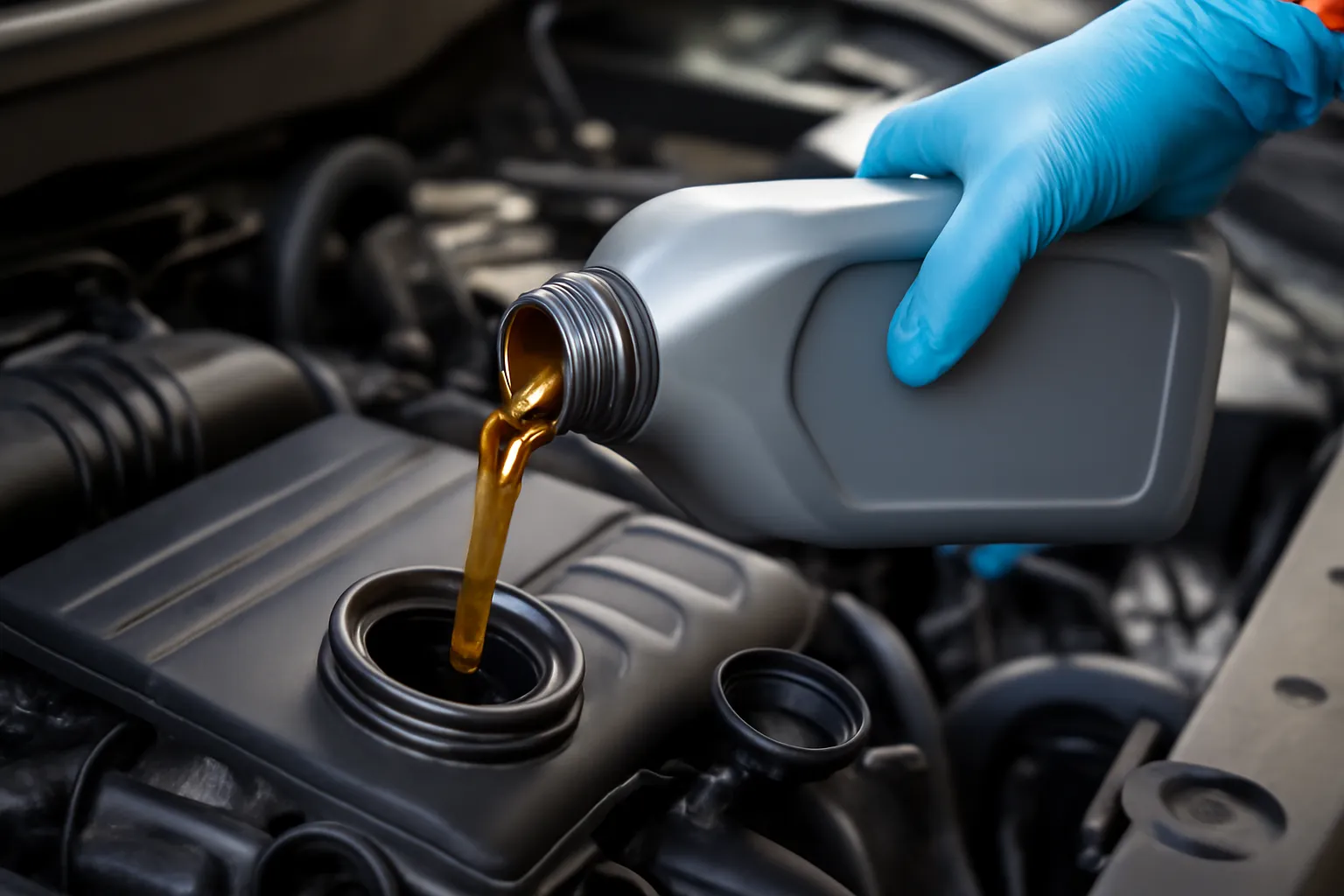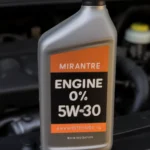Looking for the best engine oil for your car? Is 5W30 the right choice, or should you consider 0W30 or 5W40? Discover the difference, recommendations, and expert tips for maintaining your engine’s health.
Engine oil plays a critical role in keeping your car’s engine running smoothly, helping to reduce friction, prevent overheating, and maintain overall engine health. When selecting the right engine oil, many car owners are presented with different types, such as 5W30, 0W30, and 5W40. But how do you know which one is the best for your vehicle? Let’s take a deep dive into the differences, recommendations, and key factors that will help you make an informed decision about 5W30 engine oil.
Engine Oil 5W30 vs 0W30: Which is Right for Your Car?
The numbers in engine oil ratings, such as 5W30 and 0W30, refer to the oil’s viscosity at different temperatures. The “W” stands for winter, and the number before it indicates how well the oil flows in colder temperatures. In the case of 5W30 and 0W30, both oils offer excellent low-temperature performance, but there are key differences to consider.
What’s the Difference Between 5W30 and 0W30?
-
Cold Weather Performance 0W30 has a lower winter viscosity, meaning it flows more easily at extremely low temperatures compared to 5W30. This makes 0W30 a better choice if you live in areas with extremely cold winters.
-
Fuel Economy 0W30 might slightly improve fuel economy in colder climates due to its lighter viscosity at low temperatures. However, the difference is generally minor.
-
Compatibility Most vehicles will perform well with 5W30, as it balances performance in both cold and warm conditions. If you frequently drive in freezing temperatures or experience harsh winters, 0W30 may be the better option.
-
Longevity Both oils provide strong protection over time, but 5W30 is often recommended for most cars due to its versatility and compatibility with a wide range of driving conditions.
Which Oil Should You Choose?
If your vehicle is used in a moderate climate or you don’t often experience temperatures below freezing, 5W30 is typically the best choice. However, if you’re in a colder region or have an engine designed for more extreme winter conditions, 0W30 might be worth considering.
🔍 Learn more about 5W30 vs 0W30 oils here! 🔍
Engine Oil 5W30 vs 5W40: Understanding the Differences
Both 5W30 and 5W40 oils are popular choices for many vehicles, but how do they differ and which one should you pick? Here’s a breakdown:
Key Differences Between 5W30 and 5W40
-
Viscosity at High Temperatures The key difference between 5W30 and 5W40 lies in their high-temperature viscosity. The “30” and “40” numbers refer to the oil’s thickness at operating temperatures, with 5W40 being thicker than 5W30. This makes 5W40 a better choice for high-performance engines or vehicles that operate in hotter climates or under heavy loads.
-
Engine Protection 5W40 provides slightly better protection at higher temperatures, making it ideal for heavy-duty driving, towing, or sports cars. On the other hand, 5W30 is more suitable for everyday driving conditions and provides excellent protection in both city and highway driving.
-
Fuel Economy Because 5W30 is thinner at high temperatures, it may offer a slight edge in fuel efficiency over 5W40, especially in normal driving conditions. However, this difference is typically small and may not be noticeable unless you are using the car for long-distance driving or frequent city commutes.
Which One Should You Choose?
-
For Normal Driving Conditions If you mostly drive in mild conditions with standard usage, 5W30 is your go-to. It provides a great balance of performance and fuel efficiency.
-
For High-Performance or Hot Climates 5W40 is better suited for engines under stress, high temperatures, or vehicles that perform in harsh conditions.
🔍 Explore more about the difference between 5W30 and 5W40! 🔍
Why 5W30 Engine Oil is Recommended for Most Cars
5W30 is arguably the most commonly recommended engine oil due to its ideal balance between performance, fuel efficiency, and cost. Here’s why it’s often the go-to choice for a wide range of vehicles:
Why Is 5W30 the Best Choice?
-
Wide Compatibility 5W30 works well in a variety of vehicles, from everyday sedans to compact cars and even light trucks. Its viscosity allows it to flow easily during cold starts while maintaining an appropriate level of thickness when the engine heats up.
-
Fuel Efficiency The slightly thinner composition of 5W30 (compared to thicker oils) can help with better fuel economy, making it a popular option for those looking to reduce fuel consumption without sacrificing performance.
-
Protection and Durability Despite being thinner than other oils like 5W40, 5W30 offers exceptional protection for your engine, preventing wear and tear over time. It strikes a perfect balance between high performance and durability, making it suitable for the majority of vehicles on the road today.
Real-World Recommendations for 5W30
-
General Consumer Vehicles Most new cars and daily drivers benefit from the use of 5W30 due to its reliable performance and long-term engine protection.
-
Manufacturer Specifications Always check your car’s manual to verify that 5W30 is recommended by the manufacturer. Most cars made in the last decade will list 5W30 as the ideal oil type.
🔍 Get the best 5W30 oil for your car! 🔍
Conclusion
Choosing the right engine oil for your vehicle is crucial for maintaining optimal engine performance. While 5W30 is an excellent option for most cars, understanding the differences between 5W30, 0W30, and 5W40 helps you make an informed decision based on your climate and driving conditions. Whether you’re in need of better cold-weather performance, higher heat resistance, or just want a reliable all-rounder, there’s an engine oil suited to your needs.
Remember, regular oil changes and using the recommended oil for your vehicle will prolong engine life and improve overall performance. Don’t skip on engine oil – it’s one of the most important factors in keeping your car running smoothly for years to come.






